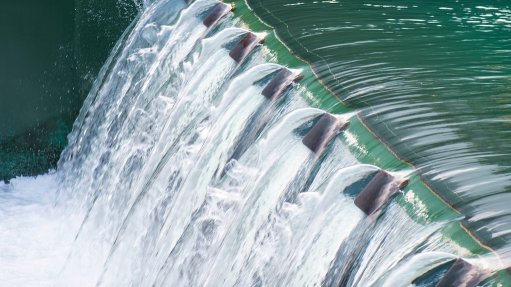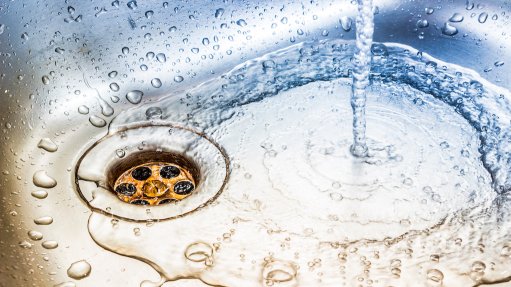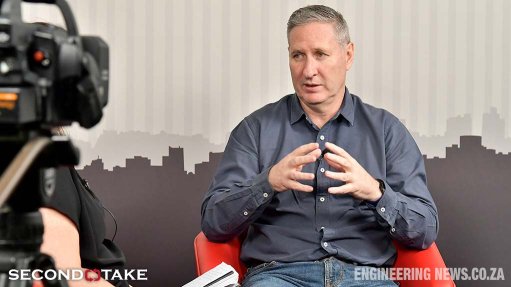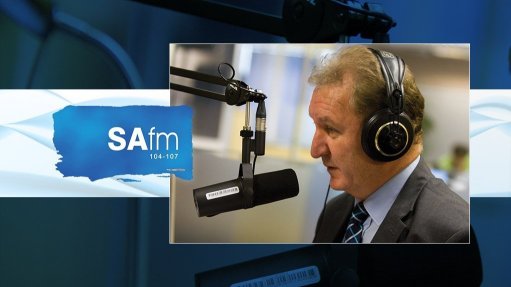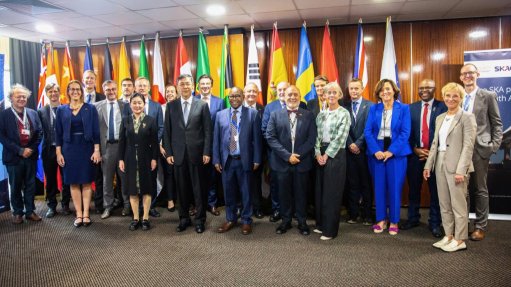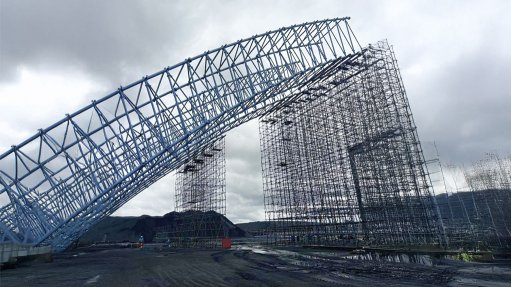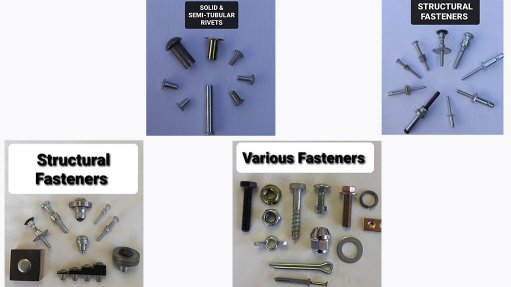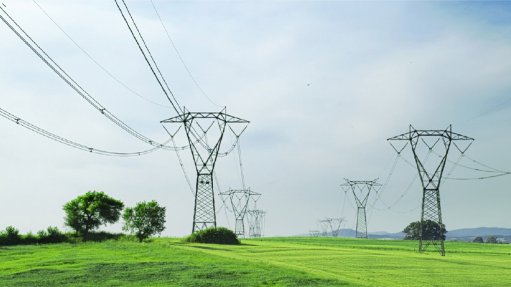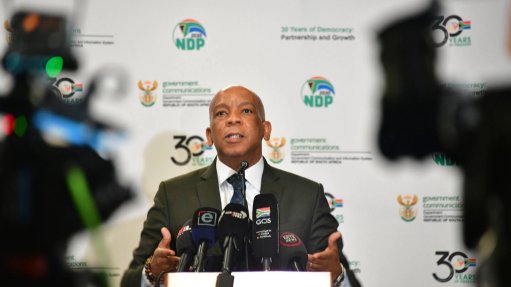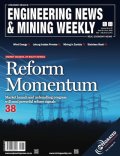Cabinet approves National Water Amendment Bill: Strengthening Water Security
This article has been supplied and will be available for a limited time only on this website.
By Calvin Nchabeleng, Partner and Makgati Makgatho, Senior Associate, Webber Wentzel
On 6 August 2025, the cabinet approved the National Water Amendment Act to be tabled at Parliament. This will mark the third amendment to the National Water Act, 1998; the first was in 1999, and the second was in 2014.
Across South Africa, the government is keenly aware of the issues facing the water sector and is taking action. On 27 and 28 March 2025, the Department of Water and Sanitation (DWS) hosted the 2025 Water and Sanitation Indaba in Midrand, Gauteng. At the Indaba, DWS adopted specific resolutions, including:
- DWS to finalise amendments to the National Water Act and submit to Parliament within 6 months, including legislating the use-it-or-lose-it principle for water use licenses;
- increase water investment through financing options and ensuring financial viability of the water sector through (among others), DWS implementing the revised Raw Water Pricing Strategy and establishing an independent economic water regulator to regulate water prices across the water value chain; and
- DWS to finalise the establishment of the National Water Resource Infrastructure Agency by mid-2026 to enable increased finance for national water resource infrastructure projects.
Furthermore, in May 2025, the government included the water sector as a key priority as part of the launch of Phase II of Operation Vulindlela, with work set to begin in earnest.
In line with the above-mentioned resolutions, DWS has proposed amending key legislation that regulates South Africa's water and sanitation sector. Namely, the NWA and the Water Services Act, 1997 (WSA). To this end, the Draft National Water Amendment Bill and the Draft Water Services Amendment Bill were published in November 2023.
Below, we highlight the key proposed amendments to the NWA and why they matter.
Proposed changes as envisaged by the Draft NWA Amendment Bill
If one took a wide-angle lens to the proposed changes to the NWA, they include the following:
- Strengthening the protection of water source areas.
- Regulating the transfer of water use authorisations.
- Provision for reallocation of water by the Minister of Water and Sanitation (the Minister).
- Ensuring redress and equality in the issuing of water authorisations and licences.
- Extending the validity of water use licences, whilst an application of renewal of such licences is still under consideration by a responsible authority.
- Further regulating membership in water use associations.
Strengthening the protection of water source areas
Reliable water flow is crucial for any investment in the water sector. This makes water source areas vital to the reliability of water flow because they are the origin of water supply. The Draft NWA Amendment Bill seeks to introduce provisions to review and prohibit the issuance of water use licences where water source areas are threatened.
A new section in the Amendment Bill, 20A, requires the Minister of Water and Sanitation to publish a notice in the Government Gazette, listing scientifically identified water source areas. The notice must indicate (a) the geographical location of each water source area, and (b) the major threats faced by each water source area. In addition, Section 20A of the Amendment Bill requires the Minister to publish regulations for the management of activities within and around water source areas that specify the:
- prohibited activities in and around water source areas; and
- restricted activities in and around water source areas.
Consequently, Section 20A of the Amendment Bill is significant for stakeholders in sectors such as mining, where operations are driven by commodity location. Section 20A makes water resource management a precondition for operations. It is also important to note that the Amendment Bill gives the Minister the power to, where necessary, amend the list of identified water source areas, especially where the circumstances that led to the identification of those water source areas have changed.
- Sections 20B, 20C, and 20D of the Amendment Bill provide general prohibitions and restrictions in several areas. These include: cast and underground mining that may lead to acid rock drainage or acid mine drainage. Notwithstanding, the Amendment Bill is prohibited from issuing a license for any water use activity relating to open-cast mining or underground mining within the identified water source area;
- water source areas threatened by or vulnerable to streamflow reduction activities within or adjacent to a water source area, or forestry plantations or incidental activities where a 30-meter setback from the water source area has not been established;
- to streamflow reduction activities in an identified water source area or any forestry plantations or activities incidental thereto; and
- areas threatened by or vulnerable to agriculture, where a 32-meter setback from the water source area has not been established.
Transfer of water use authorisations
The changes in the Amendment Bill in relation to the transfer of water use authorisations are as a consequence of or a direct reaction to a 2023 Constitutional Court judgment, which found that 25(2) of the NWA enables a water management authority to permit a holder of a water use authorisation to allow the use of some or all of the water on another property by another person i.e. a third person. In this case, DWS contended that section 25 does not make provision for the trading or transfer of a water use entitlement from one person to another. DWS submitted that the section only permits a person to surrender part or all his/her entitlements to facilitate a water use licence application from the same resource in respect of other land that belongs to that person.
The Amendment Bill proposes to codify the Department's intention to prohibit the trading or transfer of a water use entitlement from one person to another and it provides that a person holding an entitlement to use water from a water resource may in full or in part, surrender that entitlement to facilitate his or her own licence application for the use of water from the same resource in respect of other land belonging to him or her.
Section 25(1) of the NWA currently allows a person authorised to use water for irrigation to temporarily use some or all that water for a different purpose, with the approval of the water management institution. That same person can also use some or all of the applicable water on another property in the same vicinity for the same or similar purpose.
The Amendment Bill permits the transfer of a water use authorisation to land owned by the same person who was granted the original water use. Transfer of water by an authorised person to another person will therefore be prohibited. The Amendment Bill further closes the open-endedness of the term 'temporary' in relation to the transfer of water by limiting water transfer to a period not exceeding 24 calendar months.
Prohibitions on water trading
Linked to the transfer of water use authorisations, the Amendment Bill introduces a prohibition on any trading of water use connected with the surrender of entitlement. The Amendment Bill provides that such water must be surrendered to the National Government, unless the Minister directs otherwise. The proposed provision does not provide further detail on how compliance will be monitored or how this prohibition will be enforced. We have assumed that the general provisions in the NWA pertaining to offences would apply.
Reallocation of water by the Minister
Water reallocation is a water management approach that the DWS wishes to apply to control water supply and demand. The Amendment Bill seeks to codify the DWS' 'use-it or lose-it' principle. In summary, any authorised water uses not utilised for a specific period can be reallocated by the Minister.
Section 25A of the Amendment Bill allows the Minister to allocate water between water sectors, provinces or catchment areas in the public interest. However, before an allocation can be made, the Minister must consult with any affected water sector, provincial or catchment management agency, and inform them of the intention to allocate. Accordingly, section 25A seemingly indirectly deals with 'use it, or lose it' principle, as any water use surrendered to the National Government can be reallocated by the Minister in terms of section 25A.
Whilst section 25A indirectly deals with 'use it, or lose principle', the Amendment Bill expressly seeks to codify the DWS' 'use-it or lose-it' principle by introducing section 34(2A). Section 34(2A) of the Amendment Bill authorises curtailment of the volume of water by the responsible authority, which becomes available due to failure by a water user to exercise the full existing lawful use volume for any period. The proposed section 34(2A), therefore, provides a mechanism to address the underutilisation of existing lawful water use volumes. This amendment is a tool that ensures that the limited water resources are utilised productively and efficiently.
Currently, 'the use it, or lose it' principle is implemented through the verification of existing water uses in section 35. These verifications culminate determinations which may limit the volume of water the user is legally entitled to.
The 'use it, or lose it' principle is also being implemented through licenses that are issued following the compulsory license applications in terms of section 43. Licenses that are issued following the compulsory licence applications replace any previous entitlements, including existing lawful water uses.
Redress and equality relating to the issuing of water authorisations and licences
A much-debated proposal in the Amendment Bill is the granting of water use entitlements while advancing transformation in the water sector. The Amendment Bill gives the Minister the power to make regulations prescribing the criteria that must be considered when redressing the results of past racial and gender discrimination concerning water use.
The draft bill inserts Section 27(3), which prescribes that a responsible authority must "prioritise the redress of past racial and gender discrimination when issuing a licence or general authorisation and set aside a certain volume of water in each water management area to achieve this redress."
Extension of the validity of water use licences
The Amendment Bill offers relief both to DWS and licence holders during the water use licence renewal process. It provides for a new Section 52(5), which allows DWS, when it receives an application for a license renewal, to extend the validity period of the relevant license for a maximum period of 6 (six) months.
Membership of Water User Associations
Water user associations allow, for example, mining companies, commercial farmers, and small-scale farmers to meet their own water demands while simultaneously supporting the water needs of local areas.
DWS appears to be encouraging transformation in how water use associations are composed. The Amendment Bill requires the constitution of water user associations to contain a detailed strategy to achieve transformation concerning racial and gender representation in all components of the relevant association. This is an important requirement to note, as the NWA requires the constitution to be approved by the Minister prior to the establishment of the water user association.
Apportionment of liability for offences
Section 151(1) of the NWA currently lists 13 (thirteen) offences for non-compliance with the NWA. Section 151(2) of the NWA provides that any person who is guilty of any of these offences is liable, on the first conviction, to a fine or imprisonment for a period not exceeding 5 (five) years and in the case of a second or subsequent conviction, to both a fine and imprisonment.
The Amendment Bill introduces individual liability for directors of business entities and municipal managers. In this regard, the draft bill provides for monetary recovery for:
- loss or damage (to rehabilitate or prevent damage);
- any advantage gained because of the offence; or
- reasonable costs incurred for the investigation and prosecution of the offence.
With declining water supply assurance, investment in the water sector has become a focus area for the South African government. In relation to water and sanitation, government's National Infrastructure Plan 2050 indicates that to achieve universal and reliable access to water, the vision for water infrastructure entails regulatory oversight and licensing regimes that are robust and that address both water quantity and quality, as well as pricing and the technical performance and the financial sustainability of institutions.
The proposed amendments to the NWA and the WSA are an attempt to implement these strategies. These amendments may provide the government with intervention mechanisms to remedy the apparent failure in the water services sector.
Combined with the amendments to Treasury Regulation 16 and Municipal PPP Regulations, and the establishment of the National Water Resources Infrastructure Agency, private sector investment will likely soon enter the water sector.
Comments
Press Office
Announcements
What's On
Subscribe to improve your user experience...
Option 1 (equivalent of R125 a month):
Receive a weekly copy of Creamer Media's Engineering News & Mining Weekly magazine
(print copy for those in South Africa and e-magazine for those outside of South Africa)
Receive daily email newsletters
Access to full search results
Access archive of magazine back copies
Access to Projects in Progress
Access to ONE Research Report of your choice in PDF format
Option 2 (equivalent of R375 a month):
All benefits from Option 1
PLUS
Access to Creamer Media's Research Channel Africa for ALL Research Reports, in PDF format, on various industrial and mining sectors
including Electricity; Water; Energy Transition; Hydrogen; Roads, Rail and Ports; Coal; Gold; Platinum; Battery Metals; etc.
Already a subscriber?
Forgotten your password?
Receive weekly copy of Creamer Media's Engineering News & Mining Weekly magazine (print copy for those in South Africa and e-magazine for those outside of South Africa)
➕
Recieve daily email newsletters
➕
Access to full search results
➕
Access archive of magazine back copies
➕
Access to Projects in Progress
➕
Access to ONE Research Report of your choice in PDF format
RESEARCH CHANNEL AFRICA
R4500 (equivalent of R375 a month)
SUBSCRIBEAll benefits from Option 1
➕
Access to Creamer Media's Research Channel Africa for ALL Research Reports on various industrial and mining sectors, in PDF format, including on:
Electricity
➕
Water
➕
Energy Transition
➕
Hydrogen
➕
Roads, Rail and Ports
➕
Coal
➕
Gold
➕
Platinum
➕
Battery Metals
➕
etc.
Receive all benefits from Option 1 or Option 2 delivered to numerous people at your company
➕
Multiple User names and Passwords for simultaneous log-ins
➕
Intranet integration access to all in your organisation










